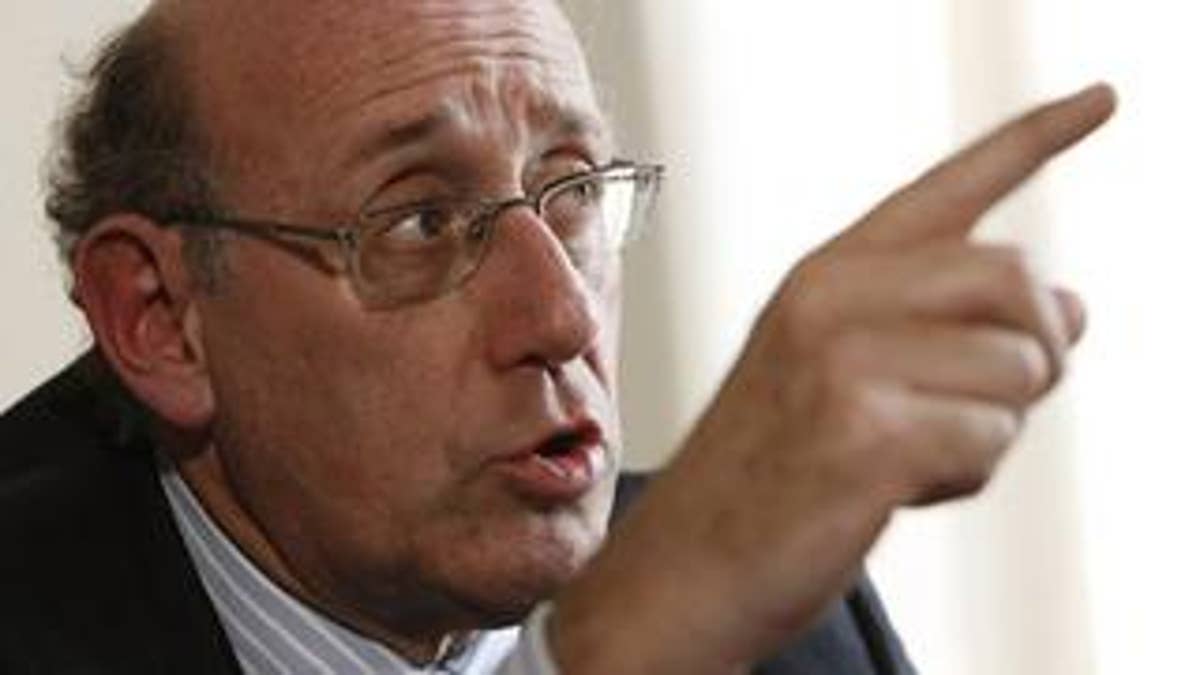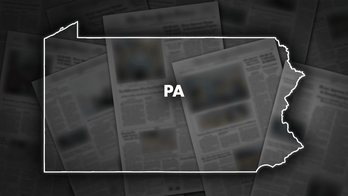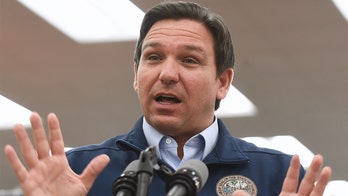
The Washington pay czar who's ordered steep pay cuts for executives at bailed-out firms could have practically unlimited power to regulate compensation at any company that gets federal funding, lawyers say -- even if his legal authority is sketchy.
The move raises questions about whether the mandate will be limited to the seven firms Kenneth Feinberg is currently targeting -- and whether it could trickle down to smaller companies.
"He has a lot of authority with respect to not just the seven but with respect to all TARP firms," said Stephen Bainbridge, law professor at UCLA. "It's an enormous expansion of federal power over corporations."
Under authority granted by Congress through legislation passed in February, Feinberg has decided to order cuts for the top 25 earners at the firms that received the most aid from the $700 billion Wall Street rescue package. He's looking to cut salaries by 90 percent from last year's levels, and to cut total pay by half.
The fact that Washington is again meddling with contracts -- following a stalled attempt by Congress in March to halt AIG bonuses -- has revived charges that the federal government is overstepping its bounds. Lawyers say Feinberg could be trampling on legally binding agreements.
But Bainbridge and others said he nevertheless has an "informal" authority to get his way.
"Certainly he has the ability to cajole even where he doesn't have the ability to directly regulate," he said.
Since these companies owe money to the federal government, that gives the Obama administration political leverage -- to exercise its ownership stake, or to embarrass the executives in the press, or to target the companies in any number of other ways.
The move by the Obama administration is for now limited to the seven top bailed-out companies and will not touch firms like Goldman Sachs and JP Morgan Chase, which repaid the government.
But President Obama on Wednesday announced plans to increase lending to small businesses and to give them greater access to the rescue fund, leaving some to question whether Feinberg might have authority to dictate executive pay at those firms as well.
Executive compensation attorney Robert Sedgwick said it would be politically untenable for the administration to impose restrictions on small businesses that accept government aid.
Mike Smida, who with his partner Bill MacLean is opening an athletic center in northeast Connecticut and received a small business government loan, said any salary restriction could have a prohibitive effect.
"It would certainly cause hesitation," he said. But he added, "If they're talking Wall Street numbers, then we have nothing to worry about."
But according to The Associated Press, the Federal Reserve is now proposing to police banks' pay policies -- even for those that didn't receive a bailout.
Judge Andrew Napolitano, Fox News judicial analyst, said the government is embarking down a slippery slope.
"If bankers don't challenge this, if they supinely accept it out of fear of what the government will do if they do challenge ... then you have a nation of sheep," he said.
For those that did receive a bailout, though, the administration may make it hard to resist making the pay cuts.
"I think the politics are too brutal," Robert Profusek, a corporate governance lawyer at Jones Day, said. "It's hard to say no. They are unbelievably powerful."
Jonathan Turley, law professor at George Washington University, said in an e-mail that the companies' debt allows the government to put "considerable pressure" on them.
He said imposing restrictions after the fact, as opposed to on the front end of the financial aid offer, creates "serious legal issues" over a lack of authority. But he said the seven firms are unlikely to challenge the mandate.
Feinberg has claimed broad authority to regulate executive pay and has already notched major victories.
In early October, Citigroup decided to shed energy trader Andrew Hall and his business after Feinberg threatened to go after his $100 million bonus. It didn't matter that the pay was determined last year. Plus outgoing Bank of America CEO Ken Lewis also agreed this month to forego his 2009 pay.
"I don't think that anybody will fail to comply," said Sedgwick. "Any move the government makes can be challenged in court, but I'm kind of doubtful."
He said the fear by executives that their names will be dragged through the mud in the press is enough to ensure compliance.
The Obama administration has already proved its ability and willingness to play hardball with political opponents -- including the health insurance industry and the Chamber of Commerce.
Sedgwick, though, said he doesn't see the same legal complications here that arose when Congress tried to crack down on millions of dollars in AIG bonuses.
Back then, critics said Congress was potentially in conflict with Article I of the U.S. Constitution -- particularly a section stating Congress cannot pass any "Bill of Attainder" -- an act of the legislature that singles out and punishes a group or individual without trial.
In this case, Congress is not the entity making the call -- Feinberg is.
Obama on Thursday said Feinberg struck a balance between standing up for taxpayers and ensuring financial stability with his plan.
"This is America. We don't disparage wealth. We don't begrudge anybody for doing well. We believe in success," he said. "But it does offend our values when executives of big financial firms ... pay themselves huge bonuses even as they continue to rely on taxpayer assistance to stay afloat."
Treasury Secretary Timothy Geithner also issued a written statement Thursday praising Feinberg.
"We gave him the difficult task of cutting excessive pay, striking a balance between compensation and risk taking, and keeping strong management teams in place to help the companies recover -- all in the public interest," he said. "We all share an interest in seeing these companies return taxpayer dollars as soon as possible, and Ken today has helped bring that day a little bit closer."
The seven affected companies under Feinberg's plan are American International Group, Citigroup, Bank of America Corp., General Motors, GMAC, Chrysler and Chrysler Financial.
Chrysler and GM reportedly said they were in discussions with Feinberg's office over the matter.
The nonprofit group Public Citizen applauded the administration's move to limit pay at the bailed-out firms.
"For the first time, the government appears to be set to take some meaningful action against business fat cats," the group said in a statement.
Public Citizen urged Congress to go after windfall bonuses and profits on Wall Street, but some lawmakers just want the bailout to end.
"The real issue here is that the Obama administration needs to develop an exit strategy to get the government out of the bailout business once and for all," House Minority Leader John Boehner said in a written statement.
Foxnews.com's Judson Berger contributed to this report.




